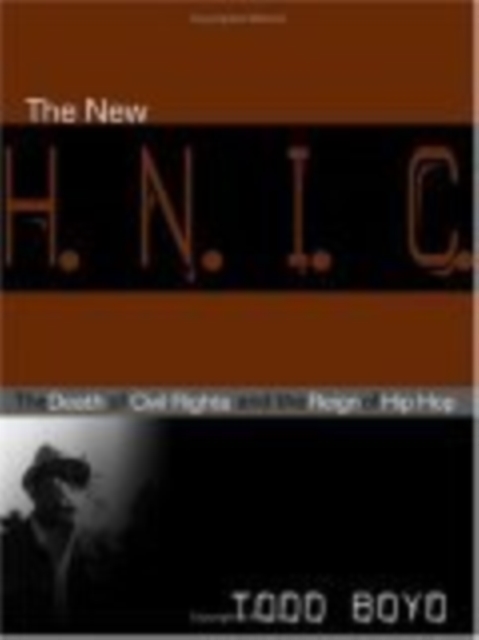
The New H.N.I.C. : The Death of Civil Rights and the Reign of Hip Hop Hardback
by Todd Boyd
Hardback
Description
Frames hip-hop as the defining cultural force in the aftermath of the Civil Rights and Black Power erasWhen Lauryn Hill stepped forward to accept her fifth Grammy Award in 1999, she paused as she collected the last trophy, and seeming somewhat startled said, "This is crazy, 'cause this is hip hop music.'" Hill's astonishment at receiving mainstream acclaim for music once deemed insignificant testifies to the explosion of this truly revolutionary art form.
Hip hop music and the culture that surrounds it-film, fashion, sports, and a whole way of being-has become the defining ethos for a generation.
Its influence has spread from the state's capital to the nation's capital, from the Pineapple to the Big Apple, from 'Frisco to Maine, and then on to Spain. But moving far beyond the music, hip hop has emerged as a social and cultural movement, displacing the ideas of the Civil Rights era.
Todd Boyd maintains that a new generation, having grown up in the aftermath of both Civil Rights and Black Power, rejects these old school models and is instead asserting its own values and ideas.
Hip hop is distinguished in this regard because it never attempted to go mainstream, but instead the mainstream came to hip hop. The New H.N.I.C., like hip hop itself, attempts to keep it real, and challenges conventional wisdom on a range of issues, from debates over use of the "N-word," the comedy of Chris Rock, and the "get money" ethos of hip hop moguls like Sean "P.
Diddy" Combs and Russell Simmons, to hip hop's impact on a diverse array of figures from Bill Clinton and Eminem to Jennifer Lopez. Maintaining that Martin Luther King, Jr.'s "I Have a Dream" speech is less important today than DMX's It's Dark and Hell is Hot, Boyd argues that Civil Rights as a cultural force is dead, confined to a series of media images frozen in another time.
Hip hop, on the other hand, represents the vanguard, and is the best way to grasp both our present and future.
Information
-
Out of stock
- Format:Hardback
- Pages:169 pages
- Publisher:New York University Press
- Publication Date:01/01/2003
- Category:
- ISBN:9780814798959
Other Formats
- Paperback / softback from £20.15
- EPUB from £18.03
Information
-
Out of stock
- Format:Hardback
- Pages:169 pages
- Publisher:New York University Press
- Publication Date:01/01/2003
- Category:
- ISBN:9780814798959






